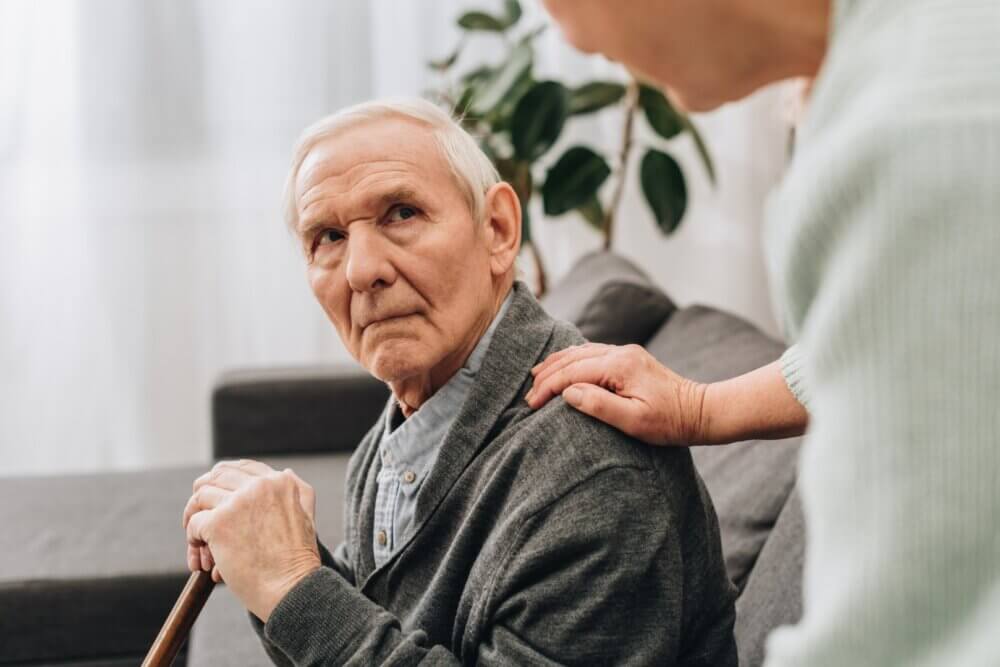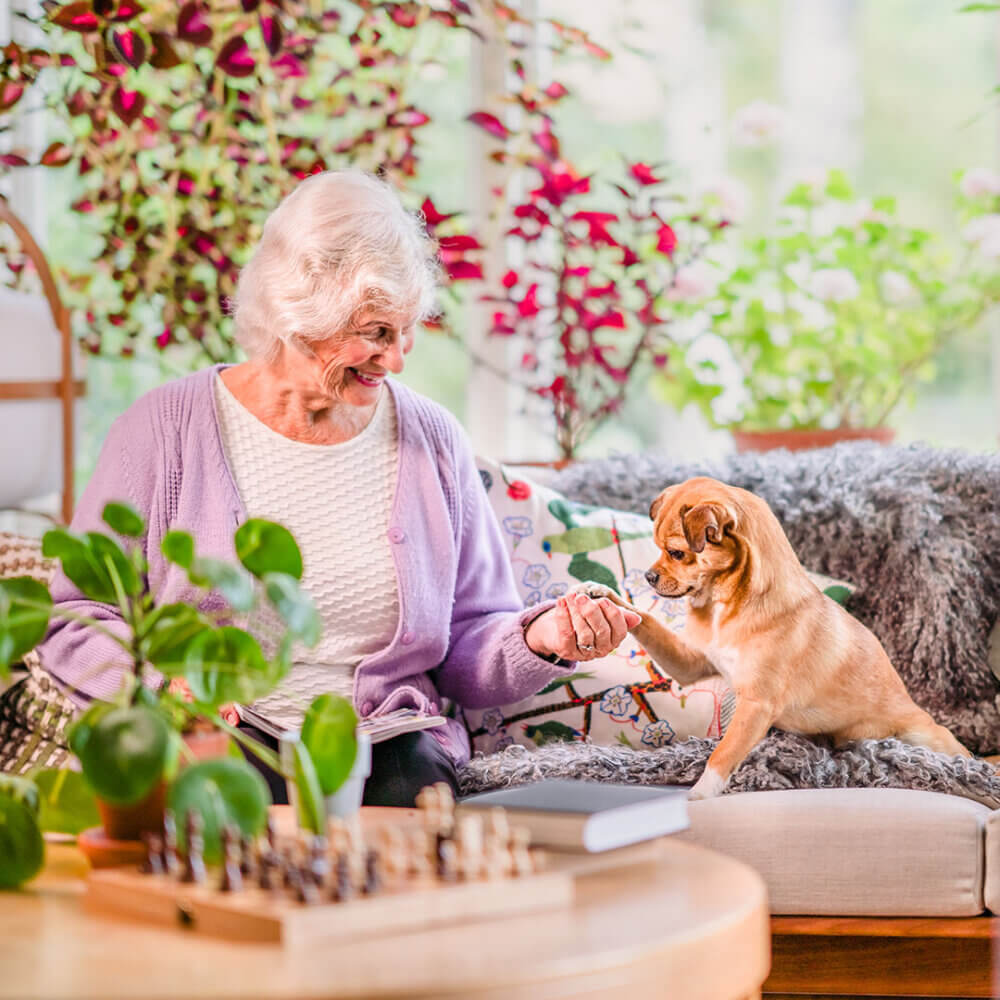How Can You Tell If Your Older Loved One Needs Help at Home?
Recognise signs your elderly loved one may need home care and explore personalised support options.

As we spend time with ageing parents or relatives, we may notice subtle changes in their behaviour or daily habits that suggest they could benefit from a little extra support. Recognising these early signs is an opportunity to ensure they receive the care they need, helping to enhance their comfort, independence, and overall quality of life.
At Home Instead East Hertfordshire, we understand the importance of supporting independence while providing personalised care. In this blog, we’ll share insights into recognising when home care could be beneficial and offer practical tips for starting the conversation with your loved one. Noticing the signs and acting on them early ensures your loved one receives the right support, helping to maintain their comfort, safety, and quality of life.

What Are the Signs Your Loved One May Need Home Care?
Caring for an elderly family member is a rewarding experience that sometimes involves paying closer attention to their changing needs. Here are some signs to look out for that might suggest professional support could be beneficial:
Forgetfulness and Wandering
Memory lapses are common with ageing, but frequent forgetfulness—such as missing medical appointments or forgetting to take medication—may indicate something more, like dementia. Similarly, wandering or becoming disoriented during outings could signal the need for additional support. While these signs may seem minor at first, they can pose safety risks over time. Addressing these behaviours early with medical guidance and in-home care can help ensure your loved one’s well-being and provide peace of mind.
Changes in Behaviour or Mood
Unusual changes in mood, such as increased anxiety, withdrawal, or irritability, can sometimes occur as part of the ageing process. For some, this may include confusion or restlessness later in the day, known as Sundowner’s Syndrome, which could indicate underlying health needs. With the right support from compassionate Care Professionals, emotional balance can be restored through stability, companionship, and reassurance, helping your loved one feel more comfortable and supported.
Decline in Personal Hygiene
Neglecting personal grooming, such as wearing the same clothes for days or forgetting to bathe, can be a sign of physical or cognitive challenges. A professional carer can help with hygiene tasks while ensuring your loved one maintains their dignity and self-esteem.
An Untidy or Unsafe Home Environment
If a once-tidy home becomes cluttered with unopened mail, expired food, or tripping hazards, it could indicate difficulty managing household responsibilities. This not only affects the home’s appearance but can also pose safety risks, increasing the chance of falls or other accidents. Light housekeeping services, offered by home care providers, can help keep the living space organised and hazard-free. For additional tips on making homes safer, refer to Age UK’s guide.
Withdrawal from Social Activities
Loneliness and isolation can sometimes affect older adults, but staying socially connected is key to their well-being. If your loved one seems less interested in hobbies or hasn’t been reaching out to friends and family as much, they might benefit from a little extra support. A caring companion can encourage social interaction and even accompany them to activities, helping them stay engaged and connected with their community. For additional resources, visitThe Silver Line.
Poor Nutrition and Meal Preparation Issues
Missing meals, noticeable weight changes, or finding it harder to prepare food can be signs that your loved one might need a little extra help. Home carers can assist with meal planning and preparation, making it easier for them to enjoy regular, balanced meals and maintain their well-being.
Mobility Issues and Increased Fall Risk
Mobility challenges and frequent falls require immediate attention, as falls can sometimes lead to more serious injuries. A home care professional can provide support with mobility exercises, help remove hazards, and ensure assistive devices are used safely to reduce risks. For more information on fall prevention, consult theNHS guidelines.

Health Conditions That Often Require Home Care
Certain health conditions make home care not just beneficial but essential for maintaining quality of life. These include:
- Dementia and Alzheimer’s Disease: These conditions often lead to memory loss and behavioural changes, requiring specialised care.
- Parkinson’s Disease: Tremors and mobility issues necessitate ongoing support.
- Heart Conditions: Cardiovascular health requires close monitoring and assistance with daily activities.
- Vision Impairments: Reduced vision can increase the risk of accidents.
- Diabetes: Managing medications, blood sugar levels, and dietary needs is more manageable with professional care.
Personalised home care plans cater to these conditions, enabling seniors to continue living in familiar and comfortable surroundings.

Starting the Conversation About Home Care
Discussing care options with an elderly loved one can feel daunting, but with the right approach, it’s possible to have a productive and compassionate conversation.
Tips for Approaching the Topic:
- Choose the Right Time: Have this discussion during a calm, quiet moment, free of distractions.
- Share Your Observations: Gently explain your concerns by pointing out specific incidents, such as missed medications or visible safety hazards at home.
- Focus on Independence: Reassure them that home care is about maintaining their independence and enhancing their quality of life, not taking away their autonomy.
- Involve Them in Decisions: Engaging your loved one in the planning process helps ensure they feel respected and valued.

How Home Care Services Can Support Your Loved One
Home care offers tailored support for seniors, covering a range of needs while easing the responsibilities of family members. Services typically include:
- Personal Care: Assistance with bathing, dressing, and grooming to ensure dignity and comfort.
- Meal Preparation: Providing nutritious meals and helping with dietary planning.
- Housekeeping: Light cleaning and decluttering to maintain a safe home environment.
- Companionship: Engaging conversation and activities to reduce loneliness.
- Dementia Support: Specialised care for those facing cognitive challenges.
Learn more about personalised home care services available in your area.

Why Choose Home Instead East Hertfordshire?
At Home Instead East Hertfordshire, we prioritise personalised, compassionate care that makes a difference in the lives of seniors and their families. Our Care Professionals work closely with families to design customised care plans, ensuring your loved one receives the support they need while maintaining their independence.
Final Thoughts
Noticing changes in your loved one’s behaviour or abilities can be difficult, but it’s an opportunity to provide them with the support they deserve. Home care services offer an effective way to balance their independence with the care they need, creating a safe and nurturing environment.
If you’re unsure about your loved one’s needs, reach out to Home Instead East Hertfordshire. Our team is here to guide you through the process, offering expert advice and tailored solutions. Together, we can ensure your loved one lives safely, comfortably, and with dignity in their own home.
For more information or toschedule a consultation, visit Home Instead East Hertfordshire. Let us help you take the first step in providing your loved one with the care they need.
